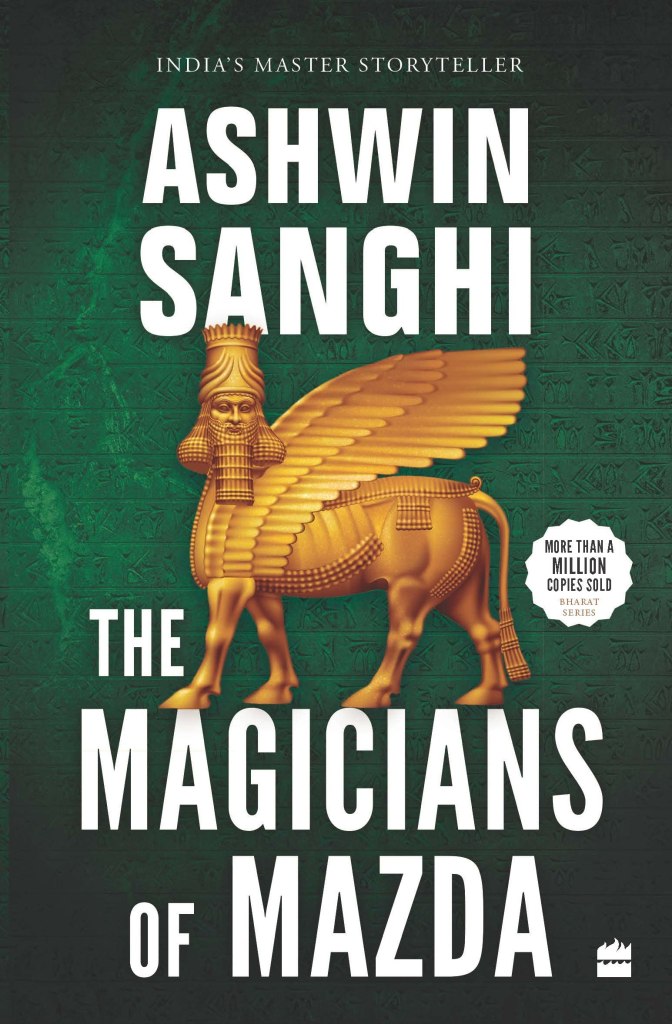“The Magicians of Mazda” by Ashwin Sanghi is conspiracy fiction (for lack of a better term to describe the genre) at his best. The author takes up Zarathustra, the Zend Avesta, Parsi history through the ages and deftly combines it with the most unlikeliest of portions of known history. Ashwin Sanghi’s strength lies in the fact that he brings together fact and fiction in a fairly deadly concoction which leaves readers unable to discern between the two. What’s more he also believes in incorporating enough ‘action sequences’ in all the chapters that the book ends up being quite the literal ‘page turner’.
Jim Dastoor, a scientist is on the verge of a breakthrough in his research which has the potential to upend the existing status quo as far as treatment of diseases is concerned and this puts him firmly on the radar of the biggest cartel of pharmaceutical companies and as if that wasn’t enough it also puts him in the crosshairs of various intelligence agencies around the world. What starts off with his wife being abducted by unknown assailants ends up being quite the Indiana Jonesesque adventure all over the Middle East starting off in Iran, Persia moving to Afghanistan and finally ending up in Kashmir.
The history of the Parsis, their religion, their gods, their belief systems, the journeys the earliest of them undertook, their origins even form the crux of the narrative and play an important part in understanding what Jim is working towards and why it is of such significance to multiple stakeholders across the world. The need to correct perceived historical wrongs, the fight-back of the oppressed, the struggles faced by Parsis through the ages, the destruction of the Parsi heritage by successive rulers in the Middle East, all of these are neatly woven into the narrative and as such were an eye-opener to me given that I personally didn’t have too much of an idea about the history of this part of the world.
Just like the rest of his books in the Bharat Series, this one too invariably operates at the intersection of religion, history, science and geopolitics. I have read quite a few of this series and after having finished this one, I am more than inclined to pick them up and read them again, as well as read the ones that I have not yet gotten around to reading.
Read my reviews of the below books in the Bharat Series
Chanakya’s Chant – https://mahabore.wordpress.com/2012/09/14/chanakyas-chant-book-review/
The Krishna Key – https://mahabore.wordpress.com/2012/10/03/the-krishna-key-book-review/




